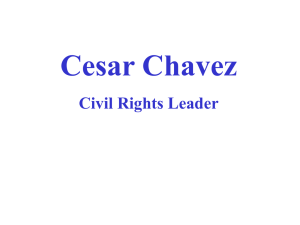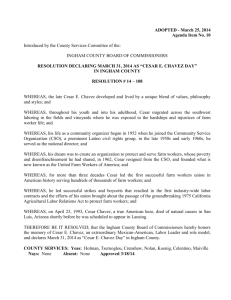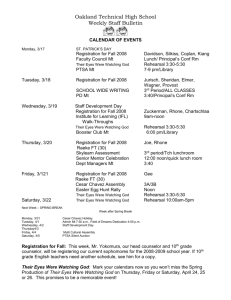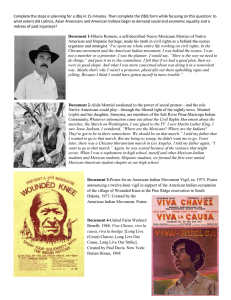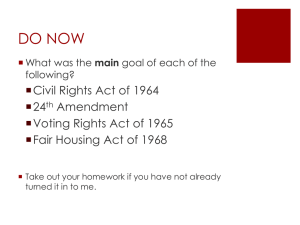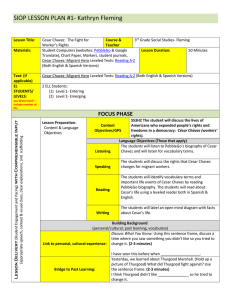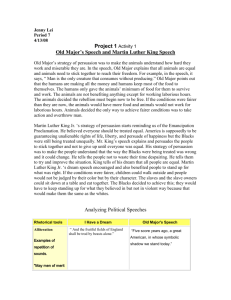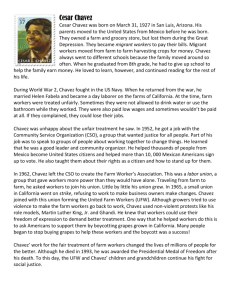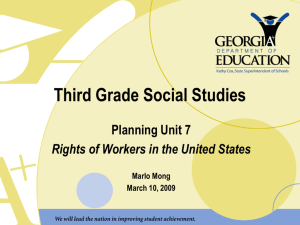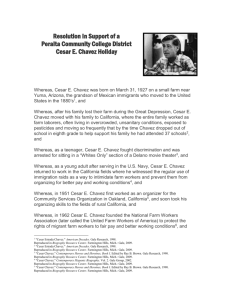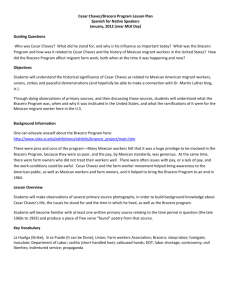Cesar Chavez - Library From Patricia Littlefield
advertisement
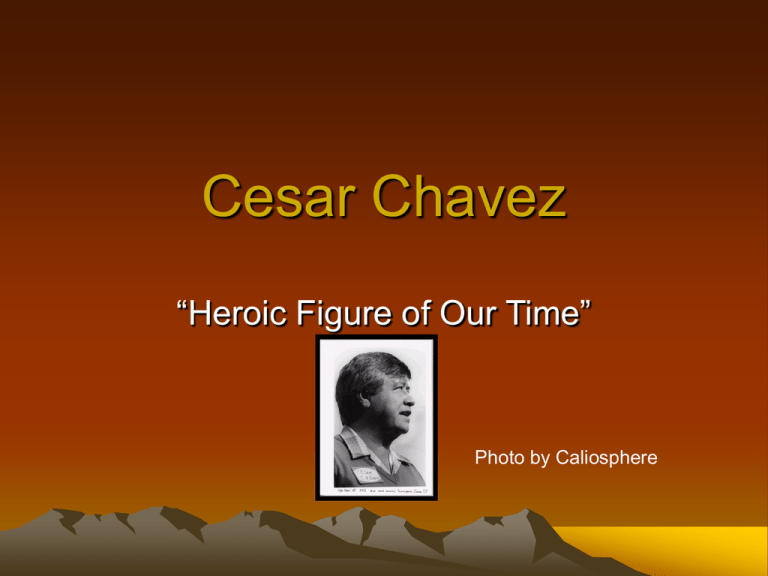
Cesar Chavez “Heroic Figure of Our Time” Photo by Caliosphere Humble Beginnings • Cesar Chavez was born March 31, 1927 in Yuma, AZ to Librado and Juana Chavez. He was the second oldest of 6 children. “Destiny” by Leo Limon Photo by Caliosphere Family Suffers During the Depression • The Chavez family owned a ranch but during the Depression they lost their land, and in 1937 they moved to California to find work in the fields. A farm near Yuma, AZ Photo by Caliosphere Chavez Family Moves to California The Chavez family worked very hard picking fruits and vegetables. They moved from farm to farm, and Cesar attended more than 30 schools before leaving school at age 15. Farm workers picking celery, Chula Vista Photo by Caliosphere World War II Veteran • Cesar joined the military during World War II and fought for his country. Some World War II soldiers. Photo from Caliosphere After World War II • Cesar returned to California, married Helen Fabela in 1948, worked registering Mexican Americans to vote in San Jose in 1952. He moved to Oakland in 1954 while continuing his work with Community Service Organization (CSO). Post-war Oakland, CA Photo from Caliosphere Birth of the NFWA • While working for CSO, Cesar’s interest in the plight of Mexican American farm workers led him to organize them into the National Farm Workers Association, which had 1,000 members by 1964. Cesar during a later strike Photo from Caliosphere Grape Boycotts • Beginning in the 1960s, Cesar led boycotts against buying grapes to help improve working conditions and pay for workers. One boycott lasted 5 years. Poster from Grape Boycott Image from Caliosphere California Labor Relations Act • Cesar’s work led to the passage of legislation titled California Labor Relations Act, the first law to recognize the right of farm workers to organize into unions in 1975. It was signed by Governor Jerry Brown. Gov. Jerry Brown 1970 Photo from Caliosphere Peaceful Protests and Hunger Strikes • Cesar continued his work during the 1970s and 1980s urging consumers to boycott lettuce. He used non-violence and hunger strikes to counter violence. Grapes were boycotted in protest of pesticides harmful to workers. “Los de abajo” by Tony Ortega Image from Caliosphere Cesar in Action Chavez, Cesar: United Farm Workers of America. Video. Encyclopædia Britannica Online School Edition. Web. 13 Oct. 2010 <http://school.eb.com/eb/art-127458>. One Man’s Life Makes A World of Difference • Cesar Chavez died April 23, 1993. Tens of thousands of people attended his funeral. He was awarded the Presidential Medal of Freedom, the highest civilian honor in the United States, in 1994. Chavez in Day of the Dead Ofrenda Image from Caliosphere
